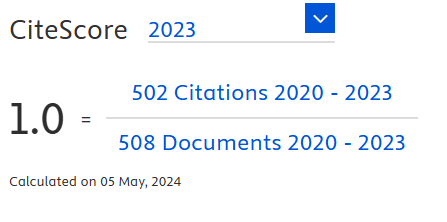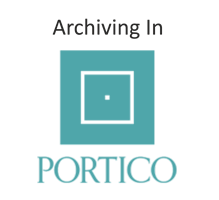Ecological desalination of anchovy residues and their mixture with soybean meal for the production of poultry feed: Optimization of waste through response surface methodology (RSM)
DOI:
https://doi.org/10.18006/2023.11(5).834.844Keywords:
Salted anchovy bones, Poultry feed, Soybean meal, Response surface methodologyAbstract
Salted anchovy bones are a non-recyclable waste product containing high salt levels. However, they also contain valuable minerals such as calcium, phosphorus, potassium, magnesium, and nitrogen. This study aimed to find a cost-effective method to desalinate anchovy bones while preserving their nutritional value and repurposing them as a raw material for poultry feed. Through various tests, we were able to reduce the salt content of the anchovy bones from 15.4% to 4.7% using a 50/50 percent mixture of tap water and from 15.4% to 3.7% using a mixture of tap water and soybean meal in a 30/70 percent ratio. Combining soybean meal with desalted anchovy bones resulted in a nutritional composition comparable to that found in poultry feed, reducing salt content. The response surface method (RSM) was employed to determine the optimal proportions of desalted anchovy bones (70-90%) and soybean meal (10-30%) and to study the variables affecting the concentrations of NaCl, Ca, P, Ash, and TNM. The study revealed the influence of desalted anchovy bone and soybean meal percentages on these concentrations. This study demonstrates that the method used provides an ideal approach for understanding the interactions between input parameters (% DAR, % SM) and output parameters (NaCl, Ca, P, Ash, and TNM) and shows promising results for the desalination of anchovy bones using a soybean meal cake as well as the feasibility of creating poultry feed.
References
Ababouch, L., El Marrakchi, A., & Division, F. A. A. E. A. P. (2009). Élaboration des semiconserves d’anchois: aspects économiques, techniques et hygiéniques, Rome, FAO Fisheries and Aquaculture Technical Papers.
Agu, C., Menkiti, M., Kadurumba, C., & Menkiti, N. (2015). Process parameter optimization for transformer oil extraction from Terminalia catappa s eed using response surface methodology. Journal of the Chinese Advanced Materials Society, 3, 328-344. DOI: https://doi.org/10.1080/22243682.2015.1088794
AOAC (1990). AOAC: official methods of analysis (Volume 1). Contaminats, Agricultural chemicals. Washington, DC, USA: Authority of the united states of america.
AOAC (2005). Of fi cial Methods of Anal y sis, GAITHERSBURG, MARY LAND 20877-2417, USA, AOAC INTERNATIONAL.
AOAC & Horwitz, W. (1975). Official methods of analysis, Association of Official Analytical Chemists Washington, DC.
Bhatti, M. S., Kapoor, D., Kalia, R. K., Reddy, A. S., & Thukral, A. K. (2011). RSM and ANN modeling for electrocoagulation of copper from simulated wastewater: Multi objective optimization using genetic algorithm approach. Desalination, 274, 74-80. DOI: https://doi.org/10.1016/j.desal.2011.01.083
Boumendil, I., Baggar, A., Yassif, F.Z., Fechtali, T., & Safi, A. (2020). Physicochemical Parameters of Moroccan Fish Salted Waste Desalting of Natural Process. In: Ezziyyani, M. (eds) Advanced Intelligent Systems for Sustainable Development (AI2SD’2019). AI2SD 2019. Advances in Intelligent Systems and Computing, vol 1104. Springer, Cham. https://doi.org/10.1007/978-3-030-36671-1_46. DOI: https://doi.org/10.1007/978-3-030-36671-1_46
Chauhan, B. & Gupta, R. (2004). Application of statistical experimental design for optimization of alkaline protease production from Bacillus sp. RGR-14. Process Biochemistry, 39, 2115-2122. DOI: https://doi.org/10.1016/j.procbio.2003.11.002
Fernández-Corredor, E., Albo-Puigserver, M., Pennino, M. G., Bellido, J. M. & Coll, M. (2021). Influence of environmental factors on different life stages of European anchovy (Engraulis encrasicolus) and European sardine (Sardina pilchardus) from the Mediterranean Sea: A literature review. Regional Studies in Marine Science, 41, 101606. DOI: https://doi.org/10.1016/j.rsma.2020.101606
Filli, K., Nkama, I., Abubakar, U., & Jideani, V. A. (2010). Influence of of extrusion variables on some functional properties of extruded millet-soybean for the manufacture of ‘fura’: A Nigerian traditional food. African Journal of Food Science, 4, 342-352.
Hasan, B., Putra, I., Suharman, I., Iriani, D., & Muchlisin, Z. A. (2019). Growth performance and carcass quality of river catfish Hemibagrus nemurus fed salted trash fish meal. The Egyptian Journal of Aquatic Research, 45, 259-264. DOI: https://doi.org/10.1016/j.ejar.2019.07.005
Horwitz, W., & International, A. (2000). Official Methods of Analysis of AOAC International, AOAC International.
Kizilkaya, B., Tekinay, A. A., & Dilgin, Y. (2010). Adsorption and removal of Cu (II) ions from aqueous solution using pretreated fish bones. Desalination, 264, 37-47. DOI: https://doi.org/10.1016/j.desal.2010.06.076
Koocheki, A., Taherian, A. R., Razavi, S. M., & Bostan, A. (2009). Response surface methodology for optimization of extraction yield, viscosity, hue and emulsion stability of mucilage extracted from Lepidium perfoliatum seeds. Food Hydrocolloids, 23, 2369-2379. DOI: https://doi.org/10.1016/j.foodhyd.2009.06.014
Köprücü, K., & Özdemir, Y. (2005). Apparent digestibility of selected feed ingredients for Nile tilapia (Oreochromis niloticus). Aquaculture, 250, 308-316. DOI: https://doi.org/10.1016/j.aquaculture.2004.12.003
Kremer, S., Mojet, J., & Shimojo, R. (2009). Salt reduction in foods using naturally brewed soy sauce. Journal of Food Science, 74, S255-S262. DOI: https://doi.org/10.1111/j.1750-3841.2009.01232.x
Lee, C., & Wang, W. (1997). Biological statistics. Science Press, Beijing.
Liu, S., Yang, F., Zhang, C., Ji, H., Hong, P., & Deng, C. (2009). Optimization of process parameters for supercritical carbon dioxide extraction of Passiflora seed oil by response surface methodology. The Journal of Supercritical Fluids, 48, 9-14. DOI: https://doi.org/10.1016/j.supflu.2008.09.013
Marchetti, M. D., Lugo, R. J. J., Massa, A. E., & Czerner, M. (2021). Valorization of residues from anchovy (Engraulis anchoita) salting-ripening process: Impact of desalting procedures in retention of biologically-active compounds. LWT, 150, 111896. DOI: https://doi.org/10.1016/j.lwt.2021.111896
Myers, R. H., Montgomery, D. C., & Anderson-Cook, C. M. (2016). Response surface methodology: process and product optimization using designed experiments, John Wiley & Sons.
Myers, R. H., Montgomery, D. C., Vining, G. G., Borror, C. M., & Kowalski, S. M. (2004). Response surface methodology: a retrospective and literature survey. Journal of quality technology, 36, 53-77. DOI: https://doi.org/10.1080/00224065.2004.11980252
Nurulnadia, M. Y., Nik-Nurasyikin, N. M. A., Ling, K. H., Zahid, B. M., Adiana, G., & Nurlemsha, B. I. (2021). Metal concentrations in fresh and salt-dried anchovy, Encrasicholina devisi, and estimation of target hazard quotient for consumers in Kuala Terengganu. Regional Studies in Marine Science, 41, 101595. DOI: https://doi.org/10.1016/j.rsma.2020.101595
Paone, E., Fazzino, F., Pizzone, D. M., Scurria, A., Pagliaro, M., Ciriminna, R., & Calabrò, P. S. (2021). Towards the anchovy biorefinery: Biogas production from anchovy processing waste after fish oil extraction with biobased limonene. Sustainability, 13, 2428. DOI: https://doi.org/10.3390/su13052428
Shrivastava, A., Bajaj, I., Saudagar, P., & Singhal, R. (2008). Media Optimization for the Production of?-Linolenic Acid by Cunninghamella echinulata var. elegans MTCC 552 Using Response Surface Methodology. International Journal of Food Engineering, 4(2), https://doi.org/10.2202/1556-3758.1178. DOI: https://doi.org/10.2202/1556-3758.1178
Taarji, N., Da Silva, C. A. R., Khalid, N., Gadhi, C., Hafidi, A., Kobayashi, I., Neves, M. A., Isoda, H., & Nakajima, M. (2018). Formulation and stabilization of oil-in-water nanoemulsions using a saponins-rich extract from argan oil press-cake. Food Chemistry, 246, 457-463. DOI: https://doi.org/10.1016/j.foodchem.2017.12.008
Taran, M. & Aghaie, E. (2015). Designing and optimization of separation process of iron impurities from kaolin by oxalic acid in bench-scale stirred-tank reactor. Applied Clay Science, 107, 109-116. DOI: https://doi.org/10.1016/j.clay.2015.01.010
Washington, S., & Ababouch, L. (2011). Private standards and certification in fisheries and aquaculture, Food and Agriculture Organization of the United Nations Rome, 2011.
Zaibunnisa, A., Norashikin, S., Mamot, S., & Osman, H. (2009). An experimental design approach for the extraction of volatile compounds from turmeric leaves (Curcuma domestica) using pressurized liquid extraction (PLE). LWT-Food Science and Technology, 42, 233-238. DOI: https://doi.org/10.1016/j.lwt.2008.03.015
Downloads
Published
How to Cite
License
Copyright (c) 2023 Journal of Experimental Biology and Agricultural Sciences

This work is licensed under a Creative Commons Attribution-NonCommercial 4.0 International License.












